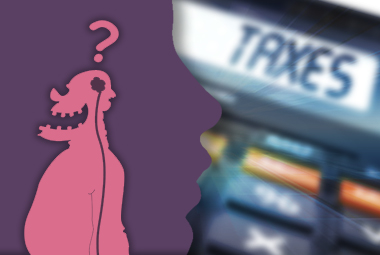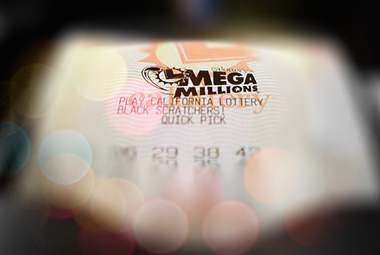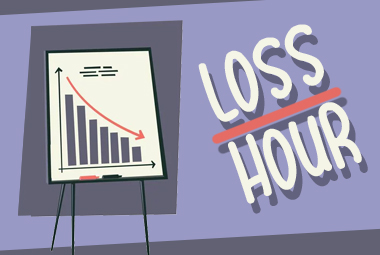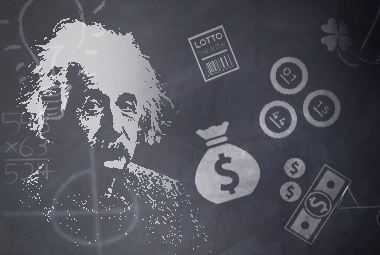Bucking the Wizard
For all fifteen of you in the United States who don’t know, the Mega Millions Lottery Drawing of Friday, October 19th, 2018 had zero top prize winners and has therefore spilled over into the next drawing, which is to be held on Wednesday October 24th, 2018.
This jackpot will be the Mega Billions jackpot because, as of the time of this writing, the jackpot has touched 1.6 BILLION dollars. Either way, this will be the largest top lottery prize in the history of the United States, and that’s assuming that it hits this coming Tuesday.
Fortunately, the Wizard has created this Mega Millions calculator so that you can see just how poor your expected value is.
As the calculator page mentions, taxes and jackpot sharing are the major factors ignored by the calculator.
The stance of Wizard is that Mega Millions, and other similar lottery games, are the absolute worst for players to play, but is that an objective fact or just a matter of opinion? In my opinion, it’s a matter of opinion, and it all really depends on how you look at it. I want to explore these sorts of high jackpot lottery games and break it down into a few different categories:
- Tax on the Willing, Tax on the Stupid or Tax on the Willingly Stupid?
- Expected Loss Per Hour
- Overall Expected Loss
- Games Unlike Any Other
- It’s All Relative
Let’s break this down, shall we?

Tax on The Willing, Tax on The Stupid, Or Tax on The Willingly Stupid?
Colloquially speaking, some people refer to all lottery games as a, “Tax on the willing,” while others still call them a, “Tax on the stupid.” These terms are not necessarily restricted to players of high-end jackpot games, such as Powerball and Mega Millions, but they may also be applied to Instant Ticket players and players who buy tickets for lesser drawings alike.
The first thing that I want to say in favor of the lottery, though it is somewhat against lottery players, is that the lottery is quite upfront with the odds from which the expected returns can be deduced. One example of a lottery game that is quite upfront is the Pennsylvania Pick Two Lottery Game, which can be found here.
Perhaps the Simplest Lottery Game of all is the Pick 2 Lottery with a Straight Ticket. The player selects two numbers between 0-9, and if they come up in the order selected by the player, then the player shall win $50. This prize will be on a For-One basis, so the original dollar is lost no matter what. Let’s take a look at the possible results of the Pick 2 Game:
(49 * 1/100) - (1 * 99/100) = -0.5
The expected return of the $1 straight ticket is a loss of $0.50, which also equates to a house edge of 50%. If you purchase 100 tickets and thereby cover every possible combination of numbers, you will automatically lose $50.
Yes, it is quite possibly the stupidest game in the world with a huge house edge that should be immediately obvious to anyone with a fourth grade education.
But, that’s the thing. The fact that, for a player to win, the player must buck a huge house edge (and staggering odds in the case of the Mega Millions top prize) is something that players are keenly aware of. That is especially true in the case of Mega Millions and the Powerball. I conducted a bit of a very small informal survey at multiple retail locations in two different states in which I asked ten customers four questions. (Those who said they were absolutely not playing---five people---were disqualified from the survey.)
- Did you know that the Mega Millions top prize was not won last night?
- Are you going to buy a Mega Millions ticket for this next drawing?
- If you are going to buy at least one ticket, how many will you buy?
- Are you going to be the winner?
1.) Did you know the Mega Millions top prize was not won last night?

Answers:
-No.
-No.
-Yes.
-I knew I didn’t win it.
-No.
-Yes.
-Really!?
-No, wow.
-Yes.
-I think so.
That comes out to six No’s, three Yes’s and one person who thinks so but wasn’t sure.
2.) Are you going to buy a Mega Millions ticket for the next drawing?
(All answers were yes or they would have been disqualified. I did accept, “If I need to stop for gas anyway,” as an affirmative response from one gentleman. The five people who said they were not buying a ticket, with one exception, did not know it had been hit.)
3.) If you are going to buy at least one ticket, how many will you buy?
Answers:
-One.
-It only takes one to win.
-One.
-Two or three, but the, “One is for my Mom and other is for my sister if she wants one.”
-I don’t know, it’s a work thing, so it’s however many people throw in.
-One.
-I won’t throw more than $20 at it, probably less.
-How much are they? You said it’s over a billion now? Probably one.
-One if I am at a gas station. (This gentleman was at a Wal-Mart that does not have lottery)
-I don’t know. At least one. Maybe a couple more.
4.) Are you going to be the winner?
Answers:
-No.
-Almost definitely not.
-Somebody has to win eventually. (After being pressed): Probably not.
-I haven’t won yet, and I don’t see that changing.
-If you have a ticket, you have a chance. (After being pressed): Almost for sure no.
-(Chuckles) Yes, I’m definitely going to win.
-No.
-Probably not.
-There ain’t a chance in Hell.
-No.
It occurs to me that most people know that the odds are stacked against them when it comes to buying Mega Millions tickets, but one of the statements that stood out to me the most as being mathematically true was the lady who said, “Somebody has to win eventually.” Strictly speaking, that’s not necessarily absolutely true, but as the number of ticket buyers increases along with the sample size of how many drawings take place prior to the current jackpot being paid out, as a practical matter, someone almost eventually has to win.
The fact of the matter is that the vast majority of lottery players, whether they are playing at positive expected value (never) or not, know that they will almost certainly not win the Mega Millions jackpot. I would also suggest that most of them probably know that the lottery is not a good bet.
Contrast this with some slot players who have varying theories about when to tap the button, waiting certain amounts of time between spins, the location of the slot machines themselves, tapping on the screen vs. not tapping on the screen...etc...etc...etc… and it’s hard not to conclude that some lottery players are better off than some slot players. The lottery players, one and all, seem to be of the belief that they are going to lose in the long run while certain other types of negative expectation gamblers try to convince themselves otherwise.
There are also table games players who, I would argue, are worse off than most lottery players in this regard. Many table game players labor under the impression that they can turn a negative expectation into a positive one through the use of some sort of betting system, whether it be the Martingale, or otherwise.
While the lottery may be a tax on the willing, and while it may be a stupid game to play, it seems that it is more of a willful stupidity than a simply ignorant one. Unlike some other types of negative expectation players who suffer the delusion that they can somehow turn an expected loss into an expected profit, lottery players simply seem to know better and want to play anyway.

Expected Loss Per Hour
Another worthy consideration when comparing the lottery to other types of gambling is that of expected loss per hour. The first thing that we have to do is agree to a definition of how long the player is, “Playing the lottery.”
There are two possible ways of looking at it that I can see:
-The player is playing a lottery from the time the ticket is purchased until the time that the drawing takes place.
-The player is only playing the lottery during the drawing itself, regardless of when the ticket was purchased.
I tend to be in the first camp on this one, that the player is playing the lottery from the time the ticket is purchased until the drawing takes place. Imagine a player purchases a single Mega Millions ticket at noon on Saturday and the drawing is not until 11:00p.m. EST on Tuesday. That means that the player possesses the ticket a full 83 hours until drawing time.
Even assuming that the player will definitely win no prize whatsoever, which is not even close to being true, the player has an expected loss of 2/83 = about 2.41 cents per hour under these conditions. We all know that the return of Mega Millions is somewhat variable with the possibility of the prize increasing as one holds the ticket, taxes and jackpot splits..but even assuming a return of -100%, the hourly loss is not that bad if one defines, “Playing,” as the entire time someone holds a ticket.
If a slot machine were to hold 10% of all monies bet in the long run, and a player were to make a bet of $0.50 on that slot machine, then the expected loss would be $0.05. This spin might take a grand total of five seconds to occur from start to end, on average, which would be about 720/spins per hour on a constantly spinning basis, which seems reasonable. On an hourly basis, that player would be losing a theoretical $36/hour.
Wizard’s position on the matter is that it is all about overall expected value. I agree that overall expected value is the most important factor when determining what makes a bet have the greatest or the least value on an all things equal per dollar bet level.
On an expected loss per hour basis, though, it’s difficult to beat the lottery if we look at, “Playing time,” as being the entire amount of time from purchase to drawing and the purchase takes place as early as possible. I’m not saying that makes the lottery a good bet, it is undoubtedly a very bad one, but the amount of time spent playing arguably gives it value.
During this time spent playing, I can only assume that one’s thoughts occasionally wander to the notion of hitting the top jackpot and being set for the rest of his/her life. As was so astutely pointed out to me, if you’ve got a ticket, you’ve got a chance. We’re going to go a little further into that in the fourth section.
Overall Expected Loss
The Mega Millions is far from the worst bet out there right now, in fact, I would argue that it’s not even close to the worst bet someone can make. The Mega Millions isn’t even as bad of a bet as it was when this jackpot restarted at its $40,000,000 base amount!
One of the worst bets right now is to buy Sears Holdings (NASDAQ: SHLD) stock if you are planning to hold it until they get out of Chapter 11 Bankruptcy for the future.
From that article:
I suspect the Sears bankruptcy will be another good lesson in the dangers of buying a stock ending in the letter Q. As of their February 2018 balance sheet, Sears had listed liabilities of nearly $11 billion and assets of around $7 billion. So, there is a several billion dollar shortfall in their ability to restructure their assets and payoff the entirety of their liabilities. This means that the long term value of their currently trading stock is most likely $0.00.
As of the time of this writing, the Market Cap for Sears Holdings is 50.682 million dollars, which is sufficient to prove that the stock market often consists of complete and total nonsense from a pragmatic standpoint. For anyone who doesn’t know, a market cap is just the most recently sold stock price multiplied by the number of outstanding shares.
In a perfectly efficient and non-speculative theoretical world, the Market Cap price would equal the value of a company’s assets over its liabilities. In the world we live in, the market cap is often complete nonsense, such as the supposition that Sears Holdings has any value whatsoever.
The way that a liquidation, the most likely possible result for Sears, would work is that all of the company’s assets will be sold to pay off creditors and other outstanding liabilities under the entirety of the company’s assets, including intellectual, has been liquidated. The most recent time this happened for a major U.S. company was Toys ‘R Us earlier this year.
Suffice it to say that there are different classes of creditors, bondholders and stockholders that are all paid in a certain order and common stockholders are dead last on that list. Even after the sale of the assumed face value of all the assets, the company will still not have anywhere near enough money to cover the amount of its liabilities, much less to pay out shareholders on a dollar-for-dollar basis with the market cap.
What’s happening right now is that the stockholders are basically just playing silly games with one another. There’s no reason for SHLD stock to be buying or selling above the price of $0.00, and if it were actually possible for a stock price to be negative, it would be. Make no bones about it, Sears presently has a net worth of less than nothing.
Even if they emerge from Chapter 11, they will do so in such a fashion that the company’s current creditors will be compensated, in part, through a financial interest in a reorganized company. In other words, the current common shareholders will still end up being completely wiped out and the current entities to whom SHLD owes money will be issued stock in whatever emerges from the wreckage. Eddie Lampert will still somehow own over half of it, I’m sure.
Sears is far from the only example of gambling that is worse than the lottery as many penny stocks are basically a straight-up vehicle for fraud from which unskilled gamblers, excuse me, I mean, “Investors,” will often get next to zero value. Sometimes there is a gem hiding in there just as the top lottery jackpot sometimes has a winner.
The amount of money that someone spends to gamble also has pragmatic meaning. If the question is do I think it is better to play a $2 slot machine spin than it is a $2 lottery ticket in terms of expected value, then the answer is yes. If the question is do I think it is better to play a slot machine at $2/spin for an hour than to buy one $2 lottery ticket, then the answer is no.

Games Unlike Any Other
Personally, I think it’s really difficult to compare a lottery or lottery players to any game that can be found within a casino, because the lottery bears little resemblance to any casino game.
The closest possible comparison is a slot machine with a huge top jackpot, but even then, Mega Millions stands in stark contrast. First of all:
(198,237,312+81,244,800+10,483,200)/302575350 = 0.958324305 or 95.8324305%
Of Mega Millions tickets lose completely. $2 gone. The end. Thank you for playing.
No Video Poker game has such a low hit rate (just above 4%) and nor do most slot machines. In fact, it’s quite possible that no slot machine has an overall hit rate that poor because it would be the complete opposite of how slot machines draw the player in.
Slot machines draw players in because they, “Win,” so frequently, even if the, “Win,” is for a lesser amount than what was bet. The player sees winning combinations and a flood of endorphins are released into the brain of the player causing feelings of joy and exhilaration which the player wants to repeat and enhance by playing again, and hopefully, winning bigger.
If we add in the break even paying 0 Hits with the Power Ball hit tickets, then the result of Mega Millions is that less than 1.5% of all results are profitable for the player. Again, if the probability of a profitable result were this low on a slot machine, almost nobody would ever play them.
For an extreme example, let’s imagine a game called, “Lottery Slot.” How Lottery Slot is going to work is that it will be a single-line game with three reels and each reel is going to have a red seven somewhere on it. If the player hits three red sevens, he wins, any other result is a loss.
How it will work is that each reel is weighted equally with 500 reel stops and one symbol on each reel. The math for it hitting works out like this:
(1/500)^3 = 0.0000000080
Therefore, the odds of hitting are 1 in 125,000,000, more than twice as likely as Mega Millions, and we’ll make the payout $200,000,000 for a $2 spin. That would make the math on this machine as follows:
(200000000 * 0.0000000080) - (2 * (1-.0000000080)) = -0.399999984
The expected loss on a $2 bet is essentially $0.40, which makes the house edge a thin 20% as compared to the more than 50% the player is going to eat on Mega Millions.
In many jurisdictions, a casino could not even legally offer this game because the return would not be good enough to hit jurisdictional minimums. The casinos would not offer this game anyway, generally speaking, because one hit would absolutely destroy them. Granted, it’s a hit that would probably not happen, but it still could.
More importantly than that, the game wouldn’t get any action because it would be insanely BORING! Imagine that you bet $2 only to have any symbol land:
1-((499/500)^3) = 0.005988008 or 1 in 167 spins.
That means that on only one of every 167 spins is the screen anything but completely blank at the result. If you really pay attention, you might see a seven flash by every once in a while. It would be even more rare to have two sevens hit the payline in one spin.
Players would sit down, pop a $20 or a $100 in, and almost one and all immediately feel the effect of the game. After ten or fewer spins, most players would decide that it was absolutely the stupidest thing that they had ever done with money in their lives and would stop playing. I think the reason for that is the player would be losing each $2 bet within seconds, as opposed to over the course of several days.
The lottery can offer these life changing sums of money because they can weather the Variance. More importantly than that, the jackpot starts out comparatively low to its current point, coming in at a thin $40,000,000. You’ll even see that the biggest linked slot progressive jackpots in Las Vegas are pretty tiny compared not only to Mega Millions right now, but compared to Mega Millions at its base jackpot amount.
Any win the size of Mega Millions would simply do too much damage to an individual casino or slot game manufacturer, but a combination of multiple states in on the Mega Millions game can more than handle the action.
I also mentioned this above, but if you look at, “Playing time,” as the amount of time spent in the possession of a ticket, this compares quite well to a single spin on a MegaBucks machine, or even several spins on a MegaBucks machine.
Mega Millions is also extremely convenient for players. Again, one gentleman answered that he would buy a ticket only if he happens to need gas between now and when the drawing takes place, so one would be hard-pressed to offer a more convenient form of gambling.

It's All Relative
In the end, NOTHING makes a negative expectation bet a, “Good bet,” other than not being a negative expectation bet. The Mega Millions has two drawings every week, which will result in an average of 104 drawings per year. If a player buys a $2 ticket for every single one of those drawings, then that player will have spent a total of $208 if he does nothing but lose.
In the world of casino gambling, it’s easy to incur an expected loss of $208. Most slot players accomplish that in just a few hours on their favorite penny machines. Given a table minimum of $5, and an expected sixty spins per hour, a double-zero roulette player is expected to lose $208:
208/(5 * .0526) = 790.874524715/60 = 13.1812420786
In about thirteen total playing hours.
Of course, the lottery player has one opportunity that the Roulette player doesn’t, to quite possibly be set for the rest of his/her life. The lottery player also arguably plays for more than a total of thirteen hours in just one drawing.
Conclusion
I’m not here to say the lottery is a good bet, it’s definitely not. Mega Millions has one of the worst expected returns out of any bet out there.
With that said, any negative expectation bet is a, “Bad bet,” so the question becomes, “What other value does the bet have?” If a person does not manage his/her winnings abysmally, Mega Millions offers a bet such that one win should set the player up for life. Mega Millions offers tremendous playtime for the amount bet. Mega Millions is also extremely upfront, unlike most slot machines, about the odds of each possible result, and therefore, the returns.
In my opinion, as long as the players believe that the entertainment value of the bet justifies the expected loss as well as the house edge, then the player has at least made a knowledgeable bet. In the case of Mega Millions, unless I’m missing something, nobody actually believes he is going to win. As long as the people are playing within their budgets, who am I to say they shouldn’t? Besides that, a large chunk of that money, win or lose, goes right into the state’s coffers, which is necessary for education (and other) funding.
It’s really just a question of whether or not someone considers the dream, and an extremely outside chance of it coming true, worth the $2.
I won’t be purchasing a $2 dream for this Mega Billions jackpot, but far from shunning you, I wish you the best of luck if you do!
Comments
What about the odds of a fatal traffic accident enroute to buying the ticket? Or enroute to seeing that Fall coloring?
You've all heard lawyer say 'pay the two dollars'.... sometimes its better to stop criticizing people and just pay the two dollars and be open to the unexpected.
I recall one couple that received a windfall of five thousand dollars and "invested" it in lottery tickets. Their return was 248.00 and they consulted a lawyer about it. He laughed at them. I would have too.
You can calculate nutritional value and declare the 'best' item on the menu to be a chopped liver sandwich, but that doesn't mean people will flock to it. House Edge is not the only standard for a bet.
In ancient Rome it was bread and circuses, today its lotteries and liquor. Perhaps that is progress; perhaps not.
I've often thought that the type of person who always spends their entire paycheck - a 'paycheck to paycheck' guy - makes a reasonable decision to buy a lottery ticket. In other words, if the money [after rent + necessities] would otherwise just go for more beer and cigarettes, and is never saved, then the buck or two for the lottery might be the smartest portion of what was spent!
There are plenty of such people.



